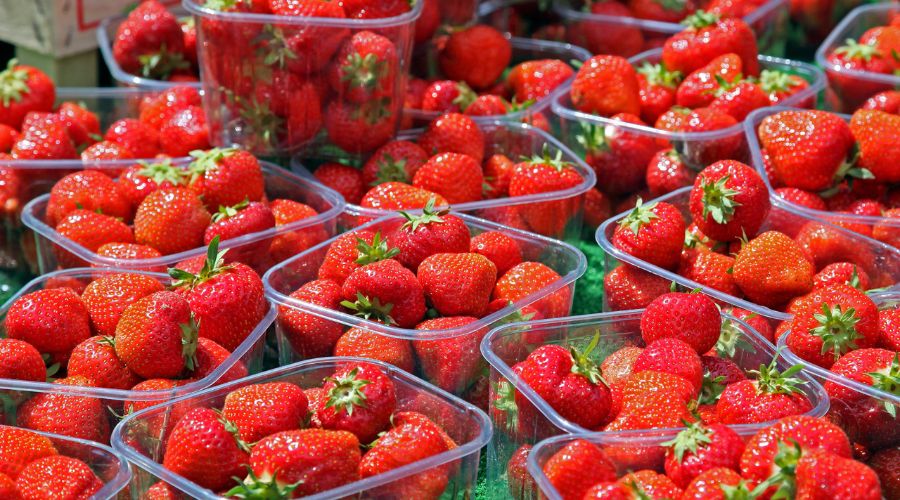British berry industry concerned following border checks removal
3rd June 2025
The British berry industry has expressed concerns following news that border checks on fruit and vegetables imported from the European Union will be permanently removed.

Defra explained that the agreement will establish a UK-EU sanitary and phytosanitary zone, slashing costs, easing pressure on food prices and eliminating routine SPS border checks for food exports and imports.
This means that checks on medium-risk fruit and vegetables (including tomatoes, grapes, plums, cherries, peaches, peppers, and more) imported from the EU will not be required – and will therefore not be brought into force this summer.
In the short term, businesses can continue importing medium-risk fruit and vegetables from the EU without the products being subject to import checks or being charged associated fees.
The SPS agreement will make food trade with the UK’s biggest market cheaper and easier. Cutting excessive red tape and fees for traders exporting to and importing from the EU will strengthen supply chains and reduce prices for businesses and consumers, the government said.
Live plant imports not included
Nick Marston, chairman of British Berry Growers, commented on the news by saying that fresh berry imports from the EU are already exempt from the UK’s border control changes, so the withdrawal of border checks has no impact on our members who import berries from Europe.
“However, we remain very concerned that live plant imports are not included in the removal of checks. The UK imports over 100 million strawberry plants each year, and these are highly perishable.
“Delays caused by inspections risk damaging or even killing the plants at great cost to growers. We fully support the Fresh Produce Consortium’s call for 24/7 inspection services at key border control points to alleviate this risk.
“Our other key concern is the ongoing requirement for phytosanitary certificates for all berry exports and certificates of conformance to marketing standards for strawberries when exported to the EU. These are difficult to obtain within the necessary timeframe.
“Defra currently requires four days’ notice to inspect and issue certificates, which is unworkable for a highly perishable product like fresh berries. To address this, we call for increased inspector capacity, a six-day working week, and a 24-hour lead time for export inspections,” the expert said.
Mr Marston added that this change is urgently needed to support British berry growers – an industry that adds £624 million to the economy, contributes £134 million in taxes, and supports 16,317 FTE jobs, according to a recent EY report.
“We urge the government to act promptly to support the UK-EU trading relationship and ease the pressures on growers facing additional challenges from further Brexit border chaos,” the chairman of British Berry Growers concluded.
Read more fruit news.
